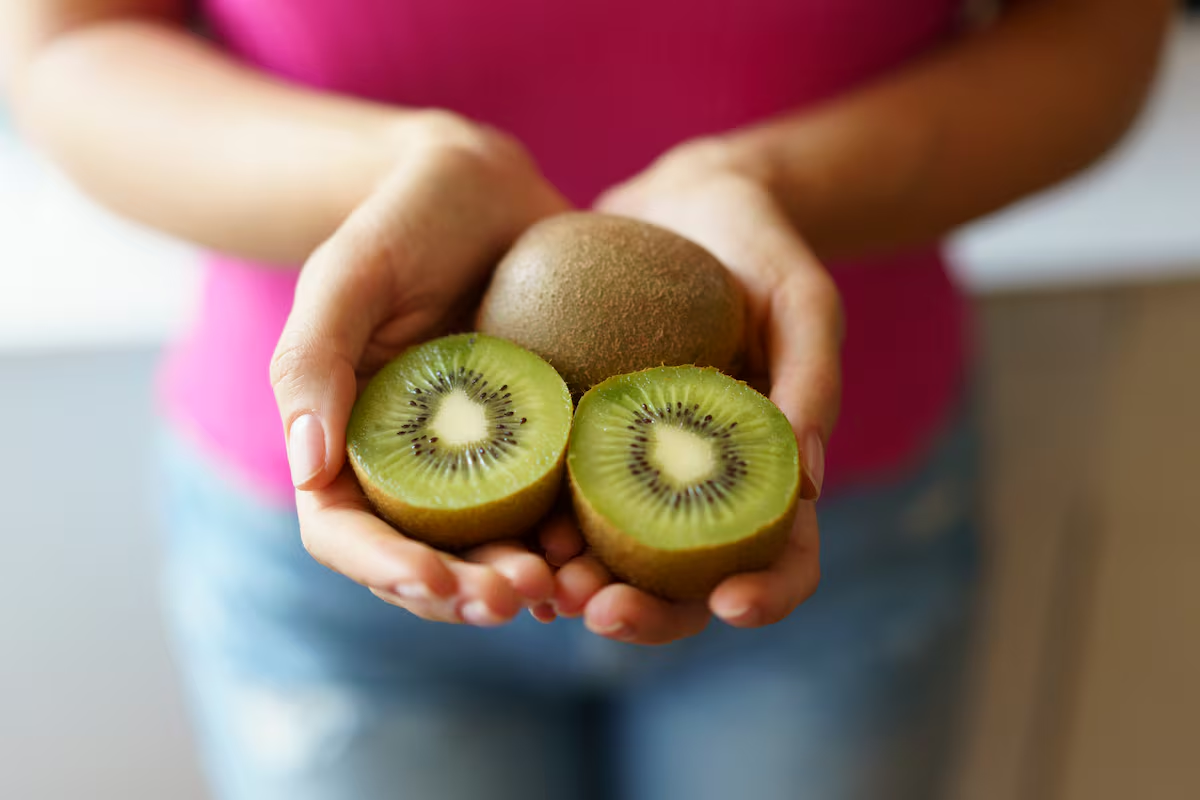
Eating kiwi helps you go to the bathroom. Many people have already guessed this. The news is that this suspicion is now supported by scientific evidence, so the European Commission has given the green light for this argument to be used in the advertising of this fruit. It is the first time that a health declaration has been authorized for a fresh fruit in Europe, which could open the door to other similar foods.
In principle this seems like a good thing, but it is important to know some details to avoid misinterpretations that can have unintended consequences.
Health in food advertising
If we took a look at food advertisements that existed just a few decades ago, we would see some things that would catch our attention today. Just remember those advertising campaigns that advertised china wine as a healthy drink for children, for its alleged “restorative” or even “medicinal” properties: “It’s medicine and it’s candy”, said one of the most popular advertisements.
Health-related slogans were also used on biscuits, chocolates and other foods of little nutritional interest, praising their supposed benefits for growth, vitality, strength, bone development or any other decoration the company wanted to invent, because there were hardly any legal restrictions preventing it.
Nowadays this can no longer be done so happily. It has been regulated for almost two decades, precisely to try to avoid the use of misleading, or even false, messages in food advertising.
Nowadays, the relationship between a food and health can be highlighted (the so-called Health Claim or health claims) only if it has been previously authorized by the European Commission on the basis of the existence of sufficient supporting scientific evidence.
Approval of declarations
It is not easy for the European Commission to authorize a health claim. The process generally begins with an application submitted by an interested company or group (e.g. a producer association). It includes the proposed statement, supporting scientific data, and information about the food or nutrient in question.
In the case in question, the request was made in 2018 by the New Zealand company Zespri, which is the largest distributor of kiwifruit in the world. It proposed to authorize the health claim “regular consumption of green kiwi contributes to the maintenance of normal defecation”, for which it provided nineteen scientific articles: eighteen intervention studies and one systematic review.
The European Food Safety Authority (EFSA) participates in the next stage of the authorization process. Their role is to assess whether there is sufficient scientific evidence to support the proposed statement, considering several criteria:
- Whether the food or compound is defined and characterized.
- Whether the claimed effect is based on the presence of an essential nutrient or constitutes a beneficial physiological effect for the target population and can be measured in vivo in humans.
- If there is a proven cause-effect relationship.
- If it can be applied under normal consumption conditions (i.e. it is not necessary to eat an unrealistic amount, such as ten kilos of kiwi, to achieve the effect).
Finally, if EFSA gives a positive opinion, the European Commission decides whether to authorize the use of this declaration, after consulting the Member States. In this case, EFSA issued a positive scientific opinion in 2021, which has now led to the authorization of such a health declaration by the European Commission.
The declaration approved
Finally, the approved health declaration is the following: “The consumption of green kiwi (Delicious kiwi Hayward variety) contributes to normal intestinal function by increasing the frequency of bowel movements.
It must be taken into account that it is allowed to simplify these types of statements to make them easier to understand, as long as their meaning is not altered, so it is likely that in the near future we will see kiwi adverts accompanied by phrases such as “helps you go to the toilet”.
As indicated by the legislation, this declaration can only be used for fresh green kiwis sold as such or which have only been peeled and/or cut with a minimum of 200 g of kiwi pulp.
Furthermore, it is advisable to inform the consumer that the beneficial effect is obtained with a daily intake of 200 g of fresh green kiwi pulp. That is, the quantity equivalent to two kiwis.
It is not an exclusive property of Kiwis
In the application submitted to the European Commission for the authorization of this health claim, the company claims that the possible mechanisms through which kiwi exerts the proposed effect are related to the following: altered intestinal motility (due to the presence of fibers and actinidin), changes in intestinal permeability and mucus secretion (due to fibre, kissper – a kiwi peptide -, phenolic compounds and raphhide), alteration of fecal properties (due to fibre) and modification of the microbiota (due to fibres, phenolic compounds and raphids).
In other words, these are mechanisms that in principle would be attributed exclusively to the green kiwi due to its particular composition. It’s also what we might think if we saw that health declaration in an advertisement for kiwifruit, a fruit that is not known for being cheap and is usually also imported from the other side of the planet (although there are also locally produced kiwifruit that are also cheaper in price).
But according to EFSA’s conclusion, scientific evidence does not demonstrate that the effect of green kiwi on normal defecation is greater than what would be expected from its dietary fiber content. Kiwi contains around 3% dietary fibre, so two large green kiwis (around 200g of flesh) provide around 6g of dietary fibre.
From this we can deduce that this effect is not exclusive to kiwi, but that we can obtain it by consuming other foods that provide a similar amount of fibre, including, for example, some fruits, vegetables, legumes or whole grains.
It’s not a talisman
There is no doubt that kiwi is a healthy food. We also now have scientific evidence that confirms what we already suspected about its effect on helping us go to the bathroom. This is positive, but it is advisable to maintain a certain caution, since we can make the mistake of using this fruit as a sort of talisman to try to compensate for unwanted eating habits.
For example, if we follow a diet in which ultra-processed products are abundant (pastries, pizzas, meat products, etc.) and fresh foods, especially of plant origin (fruit, vegetables, etc.), are scarce, we are likely to suffer from constipation. In that case, eating a couple of kiwis might help us, but it certainly won’t work alone antidote which magically transforms our diet and makes it healthy. Instead, it is advisable to follow a diet in which we give priority to healthy foods.
Pay attention to nutrition
The use of health claims in food promotion can also lead us to have a utilitarian view of food. That is, we run the risk of conceiving kiwi as a sort of remedy that we administer like medicine, only to try to go to the bathroom, instead of enjoying it as a food in its entirety. This way of relating to food is known as nutritionism and, in addition to ignoring important aspects (cultural, social, organoleptic, gastronomic, etc.), it can lead us to an obsessive or exploited relationship with food.
The picaresque
As mentioned at the beginning, this is the first time that the European Commission has authorized a health claim for a fresh fruit, which could lead to other producers or organizations making similar claims for other similar foods.
But this isn’t the first time health claims have been used to promote fruit. This is possible because the legislation allows the use of any of those authorized for a given compound, as long as it is present in the food in significant quantities.
For example, kiwi is rich in vitamin C, a nutrient for which numerous health claims are authorized: “contributes to the reduction of tiredness and fatigue”, “contributes to the normal functioning of the immune system”, “contributes to the protection of cells from oxidative stress”… and so on up to fifteen different ones. This way, you could promote the use of any of them; For example, you might say, “Kiwi is a natural source of vitamin C, which contributes to the normal functioning of the immune system.”
This strategy is used in many products. For example Danone tried without success that the European Commission authorized health claims relating to the alleged beneficial effect of the lactic acid bacteria used in the production of Actimel, but was denied due to lack of scientific evidence to support this.
So it chose to add vitamins D and B9 to the product, for which the health claim “contributes to the normal functioning of the immune system” is authorized, which the company simplifies with the famous slogan “helps your defenses”.
Lack of nutritional profiles
This strategy is also used in products where, in principle, it would be unthinkable, such as biscuits or pastries. Simply add, for example, a vitamin to benefit from one of the authorized health claims for that nutrient. In this way a product of little or no nutritional interest can be presented as healthy.
To avoid this misuse of health claims, the legislation has proposed establishing nutritional profiles that would serve as criteria to limit their use in unhealthy products, with significant quantities of elements such as sugars or salt.
EFSA presented a proposal in 2008, but it was blocked shortly afterwards due to a lack of political and technical consensus and possibly due to commercial pressures. The European Commission recently resumed the initiative, but to date it has not yet been approved.
FEEDING WITH SCIENCE It is a section on nutrition based on scientific evidence and knowledge verified by specialists. Eating is much more than a pleasure and a necessity: diet and eating habits are now the public health factor that can best help us prevent numerous diseases, from many types of cancer to diabetes. A team of dieticians-nutritionists will help us better understand the importance of food and dispel, thanks to science, the myths that lead us to eat badly.







